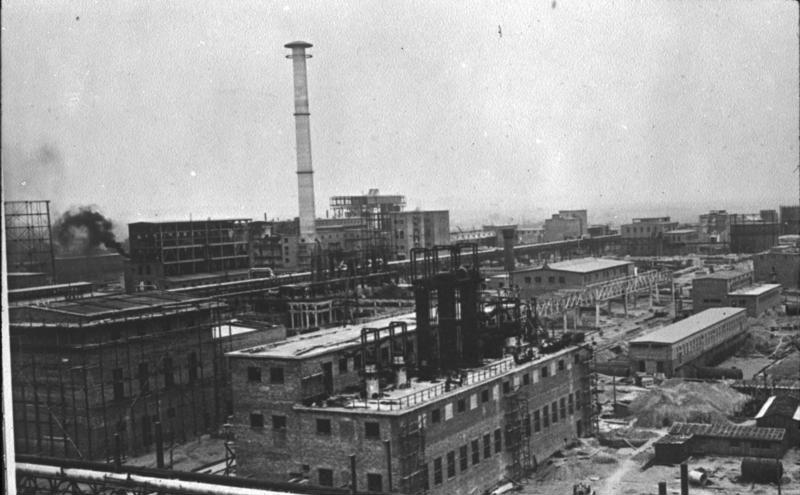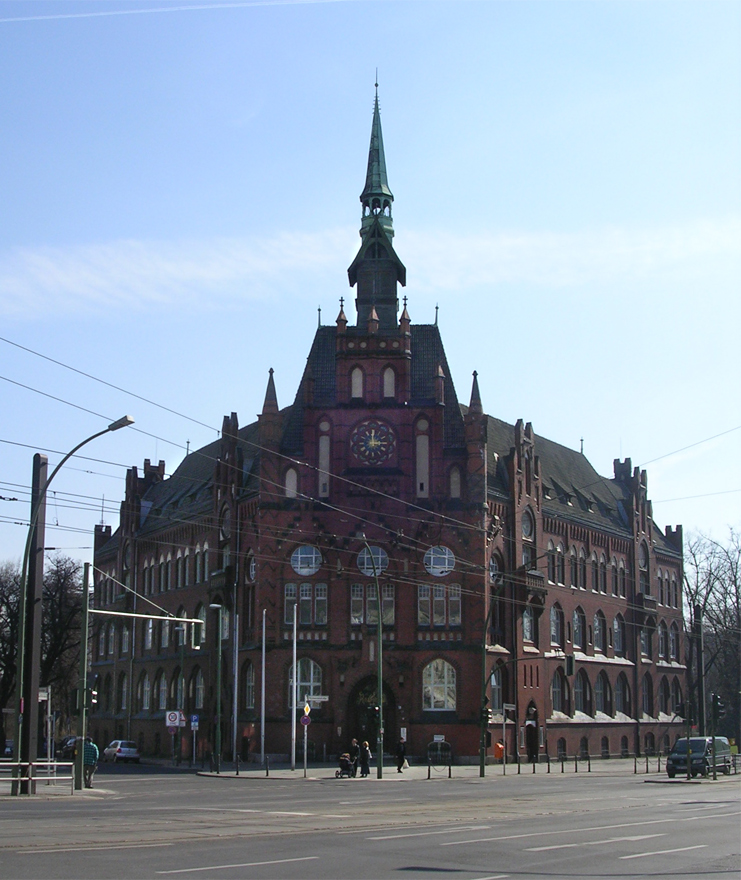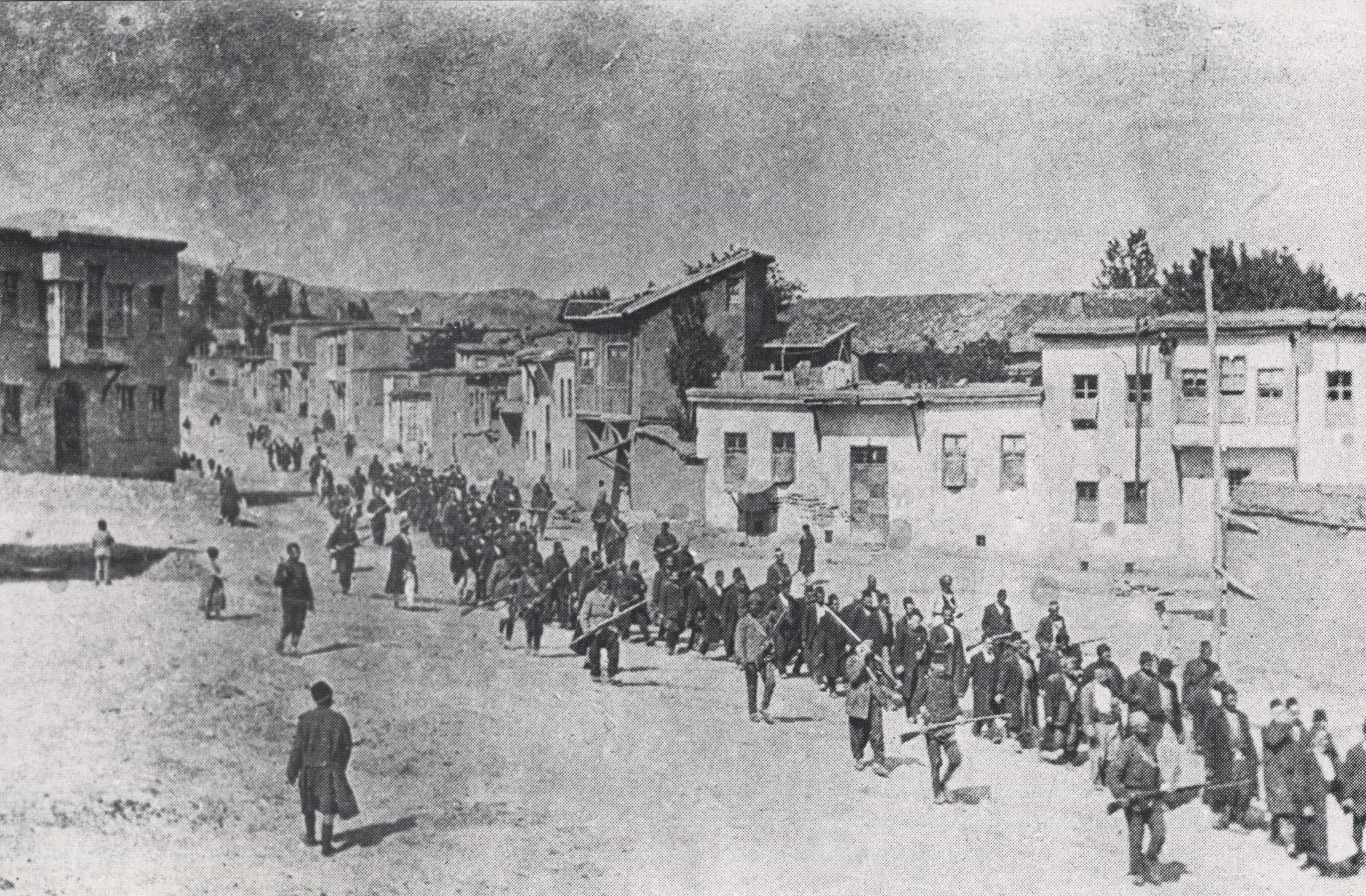|
Norbert Wollheim
Norbert Wollheim (April 26, 1913 – November 1, 1998) was a chartered accountant, tax advisor, previously a board member of the Central Council of Jews in Germany and a functionary of other Jewish organisations. Wollheim grew up in Berlin. He studied jurisprudence and political economy, but had to cease his studies in 1933 because of his Jewish origin. He then worked as a welder for a metal export firm until the outbreak of war in 1938. During that same period he played a key role in running the Kindertransport which transported 10,000 Jewish children out of the Nazi's reach and into safety. Wollheim engaged himself strongly in the Jewish life and became a managing director of the federation of . After the night of the November Pogroms known as in 1938, he helped to organise the transports of Jewish children to Great Britain and Sweden. In 1939, he also personally accompanied Kindertransports to Sweden, but immediately returned to Berlin after leaving the children in safety. ... [...More Info...] [...Related Items...] OR: [Wikipedia] [Google] [Baidu] |
Berlin
Berlin ( , ) is the capital and largest city of Germany by both area and population. Its 3.7 million inhabitants make it the European Union's most populous city, according to population within city limits. One of Germany's sixteen constituent states, Berlin is surrounded by the State of Brandenburg and contiguous with Potsdam, Brandenburg's capital. Berlin's urban area, which has a population of around 4.5 million, is the second most populous urban area in Germany after the Ruhr. The Berlin-Brandenburg capital region has around 6.2 million inhabitants and is Germany's third-largest metropolitan region after the Rhine-Ruhr and Rhine-Main regions. Berlin straddles the banks of the Spree, which flows into the Havel (a tributary of the Elbe) in the western borough of Spandau. Among the city's main topographical features are the many lakes in the western and southeastern boroughs formed by the Spree, Havel and Dahme, the largest of which is Lake Müggelsee. Due to its l ... [...More Info...] [...Related Items...] OR: [Wikipedia] [Google] [Baidu] |
Lichtenberg (locality)
Lichtenberg () is a quarter (''Ortsteil'') of Berlin in the homonymous borough (''Bezirk'') of Lichtenberg. Until 2001 it was an autonomous district with the localities of Fennpfuhl, Rummelsburg, Friedrichsfelde and Karlshorst. History The historic village of Lichtenberg, today also called ''Alt-Lichtenberg'', was founded about 1230, due to the German colonization of the territory of Barnim. The settlement around the fieldstone church was first mentioned in a 1288 deed, its estates were acquired by the neighbouring City of Berlin in 1391. ''Alt-Lichtenberg'' suffered severely during the Thirty Years' War and remained a small village at the Berlin gates until in the late 18th century Prussian noblemen like general Wichard Joachim Heinrich von Möllendorf built their residences here. In 1815 the Lichtenberg estate became a property of the Prussian chancellor Karl August von Hardenberg. The village came to be a residential area and a suburb of Berlin from the mid 19th century on ... [...More Info...] [...Related Items...] OR: [Wikipedia] [Google] [Baidu] |
Punitive Damages
Punitive damages, or exemplary damages, are damages assessed in order to punish the defendant for outrageous conduct and/or to reform or deter the defendant and others from engaging in conduct similar to that which formed the basis of the lawsuit. Although the purpose of punitive damages is not to compensate the plaintiff, the plaintiff will receive all or some of the punitive damages in award. Punitive damages are often awarded if compensatory damages are deemed an inadequate remedy. The court may impose them to prevent undercompensation of plaintiffs and to allow redress for undetectable torts and taking some strain away from the criminal justice system. Punitive damages are most important for violations of the law that are hard to detect. However, punitive damages awarded under court systems that recognize them may be difficult to enforce in jurisdictions that do not recognize them. For example, punitive damages awarded to one party in a US case would be difficult to get recogn ... [...More Info...] [...Related Items...] OR: [Wikipedia] [Google] [Baidu] |
Deutschmarks
The Deutsche Mark (; English: ''German mark''), abbreviated "DM" or "D-Mark" (), was the official currency of West Germany from 1948 until 1990 and later the unified Germany from 1990 until the adoption of the euro in 2002. In English, it was typically called the "Deutschmark" (). One Deutsche Mark was divided into 100 pfennigs. It was first issued under Allied occupation in 1948 to replace the Reichsmark and served as the Federal Republic of Germany's official currency from its founding the following year. On 31 December 1998, the Council of the European Union fixed the irrevocable exchange rate, effective 1 January 1999, for German mark to euros as DM 1.95583 = €1. In 1999, the Deutsche Mark was replaced by the euro; its coins and banknotes remained in circulation, defined in terms of euros, until the introduction of euro notes and coins on 1 January 2002. The Deutsche Mark ceased to be legal tender immediately upon the introduction of the euro—in contrast to the o ... [...More Info...] [...Related Items...] OR: [Wikipedia] [Google] [Baidu] |
Landgericht (Germany)
The judiciary of Germany is the system of courts that interprets and applies the law in Germany. The German legal system is a civil law mostly based on a comprehensive compendium of statutes, as compared to the common law systems. In criminal and administrative law, Germany uses an inquisitorial system where the judges are actively involved in investigating the facts of the case, as compared to an adversarial system where the role of the judge is primarily that of an impartial referee between the prosecutor or plaintiff and the defendant. In Germany, the independence of the judiciary is historically older than democracy. The organisation of courts is traditionally strong, and almost all federal and state actions are subject to judicial review. Judges follow a distinct career path. At the end of their legal education at university, all law students must pass a state examination before they can continue on to an apprenticeship that provides them with broad training in the legal pr ... [...More Info...] [...Related Items...] OR: [Wikipedia] [Google] [Baidu] |
Jewish Trust Corporation
The Jewish Trust Corporation (JTC) was established in 1950 in the former British zone of occupation in northwest Germany as a Jewish body to pursue claims for the restitution of heirless property of murdered persons and dissolved organizations that had been pursued on racial grounds under the Nazi regime. It was based on the model of the Jewish Restitution Successor Organization The Jewish Restitution Successor Organization Inc. (JRSO, also IRSO) was founded in 1947 in New York by various American and international Jewish organizations. Originally, it was incorporated on May 15, 1947, as the Jewish Restitution Commission, b ..., which had been established in the American zone in 1948. By the end of 1967, the JTC had recovered about 169,500,000 DM (approx. $42,375,000), and it wrapped up its operations by 1980. Many of the JTC's records are held by the Central Archive for the History of the Jewish People. References {{reflist Further reading * Kapralik, Charles I. (1962). Reclaimi ... [...More Info...] [...Related Items...] OR: [Wikipedia] [Google] [Baidu] |
West Germany
West Germany is the colloquial term used to indicate the Federal Republic of Germany (FRG; german: Bundesrepublik Deutschland , BRD) between its formation on 23 May 1949 and the German reunification through the accession of East Germany on 3 October 1990. During the Cold War, the western portion of Germany and the associated territory of West Berlin were parts of the Western Bloc. West Germany was formed as a political entity during the Allied occupation of Germany after World War II, established from eleven states formed in the three Allied zones of occupation held by the United States, the United Kingdom, and France. The FRG's provisional capital was the city of Bonn, and the Cold War era country is retrospectively designated as the Bonn Republic. At the onset of the Cold War, Europe was divided between the Western and Eastern blocs. Germany was divided into the two countries. Initially, West Germany claimed an exclusive mandate for all of Germany, representing itself as t ... [...More Info...] [...Related Items...] OR: [Wikipedia] [Google] [Baidu] |
British Zone Of Occupation
Germany was already de facto occupied by the Allies from the real fall of Nazi Germany in World War II on 8 May 1945 to the establishment of the East Germany on 7 October 1949. The Allies (United States, United Kingdom, Soviet Union, and France) asserted joint authority and sovereignty at the 1945 Berlin Declaration. At first, defining Allied-occupied Germany as all territories of the former German Reich before Nazi annexing Austria; however later in the 1945 Potsdam Conference of Allies, the Potsdam Agreement decided the new German border as it stands today. Said border gave Poland and the Soviet Union all regions of Germany (eastern parts of Pomerania, Neumark, Posen-West Prussia, Free City of Danzig, East-Prussia & Silesia) east of the Oder–Neisse line and divided the remaining "Germany as a whole" into the four occupation zones for administrative purposes under the three Western Allies (the United States, the United Kingdom, and France) and the Soviet Union. Although the ... [...More Info...] [...Related Items...] OR: [Wikipedia] [Google] [Baidu] |
Lübeck
Lübeck (; Low German also ), officially the Hanseatic City of Lübeck (german: Hansestadt Lübeck), is a city in Northern Germany. With around 217,000 inhabitants, Lübeck is the second-largest city on the German Baltic coast and in the state of Schleswig-Holstein, after its capital of Kiel, and is the 35th-largest city in Germany. The city lies in Holstein, northeast of Hamburg, on the mouth of the River Trave, which flows into the Bay of Lübeck in the borough of Travemünde, and on the Trave's tributary Wakenitz. The city is part of the Hamburg Metropolitan Region, and is the southwesternmost city on the Baltic, as well as the closest point of access to the Baltic from Hamburg. The port of Lübeck is the second-largest German Baltic port after the port of Rostock. The city lies in the Northern Low Saxon dialect area of Low German. Lübeck is famous for having been the cradle and the ''de facto'' capital of the Hanseatic League. Its city centre is Germany's most extens ... [...More Info...] [...Related Items...] OR: [Wikipedia] [Google] [Baidu] |
Death March
A death march is a forced march of prisoners of war or other captives or deportees in which individuals are left to die along the way. It is distinguished in this way from simple prisoner transport via foot march. Article 19 of the Geneva Convention requires that prisoners must be moved away from a danger zone such as an advancing front line, to a place that may be considered more secure. It is not required to evacuate prisoners that are too unwell or injured to move. In times of war such evacuations can be difficult to carry out. Death marches usually feature harsh physical labor and abuse, neglect of prisoner injury and illness, deliberate starvation and dehydration, humiliation, torture, and execution of those unable to keep up the marching pace. The march may end at a prisoner-of-war camp or internment camp, or it may continue until all the prisoners are dead. Lieutenant General Masaharu Homma was charged with failure to control his troops in 1945 in connection with the Bata ... [...More Info...] [...Related Items...] OR: [Wikipedia] [Google] [Baidu] |
Monowitz
Monowitz (also known as Monowitz-Buna, Buna and Auschwitz III) was a Nazi concentration camp and labor camp (''Arbeitslager'') run by Nazi Germany in occupied Poland from 1942–1945, during World War II and the Holocaust. For most of its existence, Monowitz was a subcamp of the Auschwitz concentration camp; from November 1943 it and other Nazi subcamps in the area were jointly known as "Auschwitz III-subcamps" (''KL Auschwitz III-Aussenlager''). In November 1944 the Germans renamed it Monowitz concentration camp, after the village of Monowice (German: Monowitz) where it was built, in the annexed portion of Poland. SS Hauptsturmführer (Captain) Heinrich Schwarz was commandant from November 1943 to January 1945. The SS established the camp in October 1942 at the behest of IG Farben executives to provide slave labor for their Buna Werke (Buna Works) industrial complex. The name ''Buna'' was derived from the butadiene-based synthetic rubber and the chemical symbol for sodium (Na), ... [...More Info...] [...Related Items...] OR: [Wikipedia] [Google] [Baidu] |
Slave Labour
Slavery and enslavement are both the state and the condition of being a slave—someone forbidden to quit one's service for an enslaver, and who is treated by the enslaver as property. Slavery typically involves slaves being made to perform some form of work while also having their location or residence dictated by the enslaver. Many historical cases of enslavement occurred as a result of breaking the law, becoming indebted, or suffering a military defeat; other forms of slavery were instituted along demographic lines such as race. Slaves may be kept in bondage for life or for a fixed period of time, after which they would be granted freedom. Although slavery is usually involuntary and involves coercion, there are also cases where people voluntarily enter into slavery to pay a debt or earn money due to poverty. In the course of human history, slavery was a typical feature of civilization, and was legal in most societies, but it is now outlawed in most countries of the wo ... [...More Info...] [...Related Items...] OR: [Wikipedia] [Google] [Baidu] |






